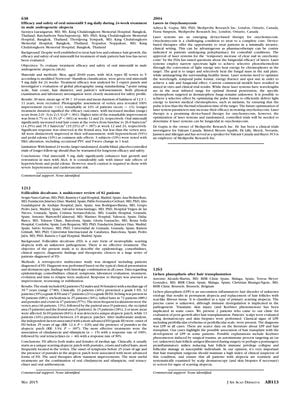Folliculitis Decalvans: A Multicenter Review of 82 Patients
May 2015
in “
Journal of The American Academy of Dermatology
”

TLDR Oral clindamycin and rifampicin are the most effective treatments for Folliculitis decalvans.
The document reports on a multicenter review of 82 patients with Folliculitis decalvans (FD), a rare neutrophilic scarring alopecia. The study aimed to describe the epidemiology, comorbidities, clinical aspects, diagnostic findings, and therapeutic choices for FD. The patients, 52 males and 30 females, had a median age of 39.7 years. Clinically, FD typically presented as a unique scarring alopecic patch with pustules, crusts, and tufted hairs, most frequently located in the vertex. Early onset of FD before 25 years and the presence of pustules were associated with more advanced FD. The most effective treatments were found to be a combination of oral clindamycin and rifampicin, with a 100% response rate, followed by oral tetracyclines with a 90% response rate. The study concluded that while the therapies provided transient improvements, these treatments were the most useful for managing FD.





